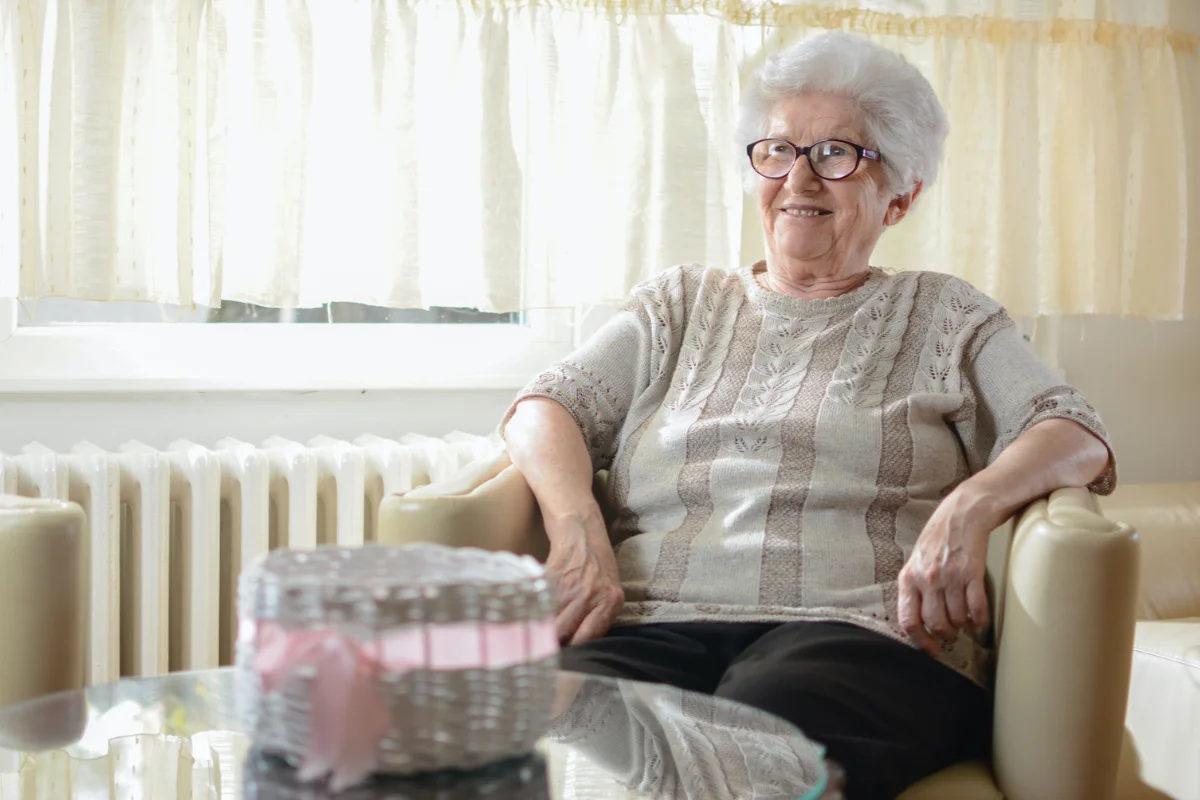The Impact of Personalized Memory Care on Cognitive Health
The Impact of Personalized Memory Care on Cognitive Health
Blog Article
All About Memory Treatment Services: Why Little Memory Care Houses Are a Fantastic Selection
Memory treatment services play an essential role in supporting people with Alzheimer's and dementia. Small memory care homes stand out for their personalized strategy and intimate setup. With reduced staff-to-resident ratios, these homes cultivate more powerful connections and customized treatment. Residents profit from enhanced social communications and a risk-free setting. As households discover alternatives, recognizing the unique advantages of tiny memory treatment homes ends up being crucial. What variables should be considered when choosing the ideal home?
Recognizing Memory Care Services
While several might know with general senior care options, comprehending memory care services is essential for households encountering the obstacles of cognitive decrease. Memory treatment especially satisfies people with problems such as Alzheimer's disease and various other forms of mental deterioration. These solutions offer an organized environment that concentrates on enhancing the top quality of life for residents via specialized treatment and support.Memory treatment centers are created to ensure security and protection, frequently featuring safeguarded environments to avoid straying. Trained staff members are offered all the time to help with daily activities, medication management, and individual treatment. Additionally, memory treatment programs frequently include cognitive excitement activities, tailored to involve citizens and advertise psychological well-being. Households can take advantage of understanding these solutions, as they make it possible for notified choices concerning their loved ones' treatment, making certain that their specific demands and choices are resolved in a supportive and compassionate manner.
The Advantages of Small Memory Treatment Houses
Small memory care homes offer distinct advantages that can significantly improve the lifestyle for residents with cognitive disabilities. One significant advantage is the intimate atmosphere, which allows for customized communications amongst personnel and locals. This smaller sized setting fosters meaningful connections, decreasing feelings of seclusion and anxiousness commonly experienced by people with memory issues.Additionally, the lower staff-to-resident ratio in little memory treatment homes enables caregivers to offer even more conscientious guidance and support. This technique not only enhances safety but likewise advertises a complacency for the residents.Moreover, tiny memory care homes can adjust swiftly to the unique requirements and choices of each homeowner, enabling a more homey environment. Such an environment can encourage social engagement and participation in activities, eventually improving the day-to-day experiences of those living with cognitive impairments.
Personalized Treatment Plans for Citizens
Personalized care strategies are vital in memory care homes, as they cater to the unique demands and choices of each homeowner. These strategies begin with extensive assessments carried out by knowledgeable professionals, that evaluate cognitive capabilities, case history, and individual rate of interests. This customized technique warranties that care is not only reliable yet additionally respectful of each person's dignity and autonomy.Moreover, customized treatment strategies are flexible, permitting adjustments as locals' requirements evolve gradually. This flexibility fosters a complacency and familiarity, which is important for individuals coping with memory obstacles. Caregivers are trained to apply these strategies continually, supplying support that aligns with the citizens' routines and preferences.Ultimately, customized treatment plans improve the lifestyle for homeowners by advertising self-reliance, well-being, and involvement, making them a basic element of memory care solutions in small memory treatment homes.
Creating a Home-Like Atmosphere
Developing a home-like setting is crucial for cultivating comfort and experience in memory care settings, as it substantially impacts residents' psychological wellness. Small memory care homes typically prioritize individualized touches, such as warm color schemes, household photos, and familiar furnishings arrangements, which aid citizens feel more at simplicity. Incorporating elements similar to a typical home, like comfortable space and public locations, urges a sense of belonging.Moreover, using natural light and exterior rooms can boost the ambience, promoting leisure and serenity. Employee play a significant duty in preserving this atmosphere by engaging with citizens in a thoughtful fashion, treating them like family. Regular activities, such as food preparation or gardening, can additionally add to a home-like feeling, providing opportunities for locals to get involved in meaningful experiences. Overall, developing a supporting environment sustains cognitive function and psychological security, making it a necessary aspect of memory care services.
Improved Social Communication and Area
Improved social interaction and neighborhood are necessary elements of memory care solutions. By cultivating individualized social interaction and developing a click over here family-like ambience, these solutions promote purposeful links among locals. Group activities and occasions better urge involvement, assisting individuals really feel more included and supported.
Customized Social Involvement
While social interaction is vital for overall well-being, several people with memory disabilities commonly battle to involve meaningfully with others. Customized social engagement in memory care homes addresses this difficulty by developing customized tasks that accommodate citizens' distinct rate of interests and abilities. By concentrating on private preferences, caregivers can foster links that resonate deeply with each person. Activities such as art therapy, music sessions, and assisted conversations promote cognitive stimulation and emotional expression. Additionally, tiny group settings motivate camaraderie and enable even more intimate communications, boosting feelings of belonging. This approach not just combats sensations of isolation however likewise empowers citizens to keep a feeling of identity, inevitably adding to enhanced psychological wellness and quality of life.
Family-like Atmosphere
In a memory treatment setup, cultivating a family-like ambience significantly enhances social interaction and develops a feeling of neighborhood amongst residents. Smaller sized memory care homes frequently focus on intimate atmospheres, allowing locals to develop closer links with one another and team member. This nurturing ambience advertises depend on, which is vital for people with memory disabilities. Residents are most likely to talk and share experiences, creating an encouraging network that eases feelings of loneliness. The familiarity of common rooms and routines adds to a feeling of belonging, even more motivating social communication (personalized memory care). In such setups, psychological bonds prosper, resulting in boosted overall well-being and a greater top quality of life for residents as they navigate their day-to-day experiences together
Group Activities and Events

Safety and Protection Functions in Small Homes
Numerous little homes designed for memory care incorporate necessary safety and security and protection functions to guarantee the health of locals. These homes typically make use of safe access and exit points to prevent straying, an usual worry among people with memory impairments. Additionally, monitoring systems and alarm system mechanisms improve surveillance, making sure that personnel can immediately reply to any unusual activities.Interior layouts are tailored for security, with decreased hazards such as clutter-free pathways and sharp edges. Handrails and non-slip floor covering are commonly installed to minimize the danger of falls. Team member are learnt emergency situation protocols, ensuring they are prepared for numerous situations.Moreover, individualized care strategies may consist of evaluation of private security requirements, giving tailored options for each local. Overall, these safety and safety attributes create a caring setting where citizens can grow while preserving their self-respect and independence.
Exactly how to Pick the Right Memory Care Home
Just how can family members assure they pick one of the most appropriate memory treatment home for their liked ones? The decision calls for mindful consideration of a number of variables. Households must evaluate the center's staff credentials and training, ensuring that caregivers are experienced in managing memory-related conditions. Next off, it's crucial to assess the home's setting, concentrating on safety attributes and whether it cultivates a sense of community and belonging. Checking out the center can give understanding into everyday activities and the social atmosphere, which are vital for mental stimulation and psychological well-being. Furthermore, families must ask about the treatment plans offered, ensuring they are tailored to specific requirements. Considering the home's location and accessibility for family members sees can add to a smoother change. By attending to these facets, family members can make an informed decision that prioritizes their liked one's convenience and lifestyle in a memory treatment setting.
Regularly Asked Inquiries
What Qualifications Should Staff Members in Memory Treatment Houses Have?
Team member in memory care homes ought to have relevant certifications, experience in dementia treatment, strong interaction skills, and compassion. Recurring training in behavioral monitoring and restorative interventions enhances their capability to support locals properly.
How Do Memory Care Provider Differ From Conventional Assisted Living?
Memory treatment solutions concentrate particularly on people with memory problems, providing specific assistance and structured atmospheres. On the other hand, conventional assisted living offers general aid with daily tasks, lacking the customized technique needed for those with cognitive challenges.
What Sorts of Tasks Are Provided in Memory Treatment Homes?
Memory treatment homes usually provide a selection of tasks developed to involve locals. Typical options include art treatment, music sessions, cognitive video games, exercises, gardening, and get-togethers, all targeted at boosting wellness and cognitive function.
Can Citizens Bring Their Own Possessions to Memory Care Homes?
Residents can typically bring their very own valuables to memory treatment homes, enabling them to individualize their living area - personalized memory care. This method aids develop a familiar environment, advertising convenience and a feeling of identity for the people

How Are Relative Associated With the Treatment Refine?
Relative play an essential duty in the care process, commonly participating in decision-making, check that going to care conferences, and providing emotional support. Their participation cultivates a collective atmosphere, enhancing the local's general well-being and lifestyle. While many might be acquainted with basic senior treatment choices, comprehending memory care solutions is necessary for family members encountering the obstacles of cognitive decrease. These services give an organized environment that focuses on enhancing the quality of life for homeowners via specialized care and support.Memory care centers are designed to assure safety and security and security, usually including protected atmospheres to avoid straying. Customized care strategies are essential in memory treatment homes, as they provide to the unique demands and choices of each local. Team members in memory treatment homes must possess relevant qualifications, experience in dementia care, solid interaction skills, and concern. Memory care solutions focus especially on individuals with memory impairments, providing specialized support and organized atmospheres.
Report this page